Student Blog
Bryan
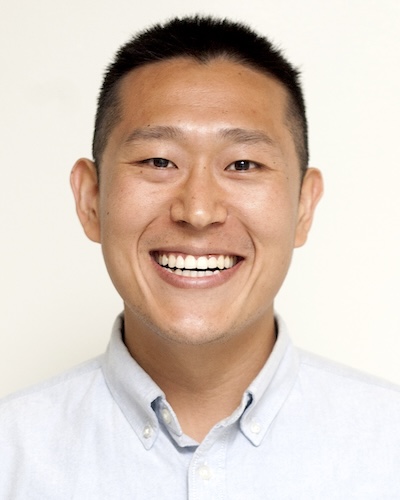
Shadow, Chance, Sassy ⟩
February 13, 2018, by Bryan
One of my favorite movies growing up was Homeward Bound (I think it is on Netflix). In the movie the owner of three household pets, two dogs and one cat, gets married and begins a new job in San Francisco, CA. As the owner relocates, he leaves his three companions on a ranch with extended family to take care of them. Drama unfolds, however, as Chance, a disobedient American Bulldog, begins to entertain the idea that they have been collectively abandoned to reside on this ranch till dog heaven. As the film progresses, both Shadow, the older and wiser Golden Retriever (I also named my first dog shadow!), and Sassy, a Himalayan cat, also begin to grow worrisome regarding the status of their owners.
From there, the three animals go on a rollercoaster journey, venturing into the thick of the Sierra Nevadas, following their instincts in a search for “home.” They encounter waterfalls, grizzly bears, porcupines, even incurring a few injuries along the way. Throughout it all, they they learn to band together through obstacles, trying to find their family.
Throughout this week, I have been thinking about Homeward Bound, dogs, and what gives a place meaning. I guess from an early age the idea of “home” fascinated me (as well as the love for dogs). Within our fast-paced culture driven by career changes from company to company, shifting communities, and wanderlust travels, I feel like home could easily get lost in experiences.
For one of our readings in OT 545: Advanced Seminar in Occupational Science, we read an article written by Ruth Zemke, one of our leaders in occupational science, who called for occupational therapists to consider what transforms a “space” into a “place” (Zemke, 2004). Zemke illuminates the distinction between a space and the unique meaning required to reinvision it into a place.
What are the important places in my life? What are the meaningful places in my patients’ lives? What makes a house a home?
As I sprint into halfway through my final semester of the entry-level master’s program here in the Chan Division, I am learning to reap the fruits of our curriculum emphasizing not only the clinical knowledge and therapeutic intervention as part of our patients’ recovery, but also the mindfulness and reflective thinking to understand them throughout that process. We as occupational therapists are gifted an opportune season in a person’s life in which life roles, physical abilities, and considerations of meaningful occupations might be transitioning, oftentimes starkly. Within these unstable moments, our reflections on an often ephemeral view of home might be the very incitation for us to take that next step forward. Maybe our therapy gyms or even hospital rooms can feel like much more than just space.
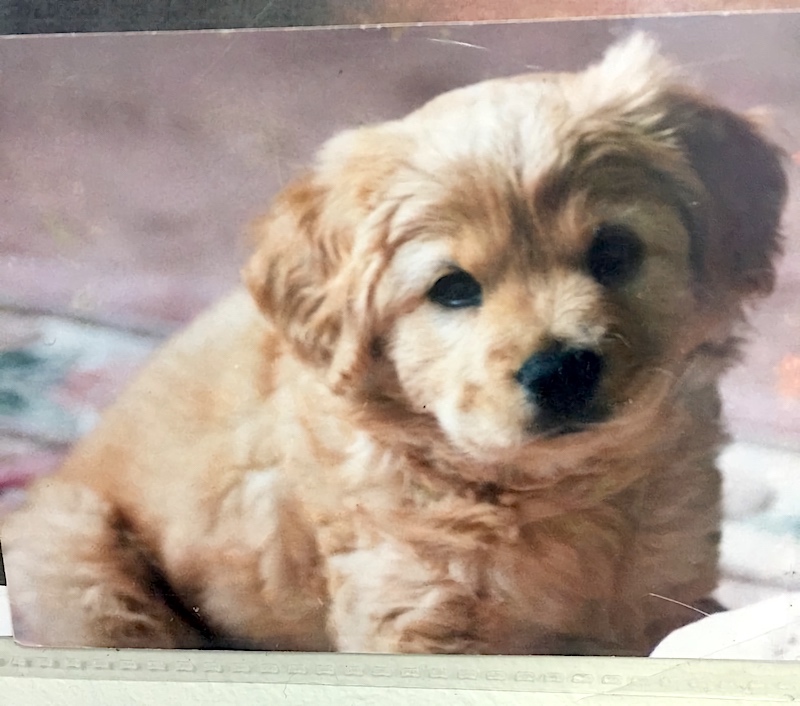
Shadow as a puppy
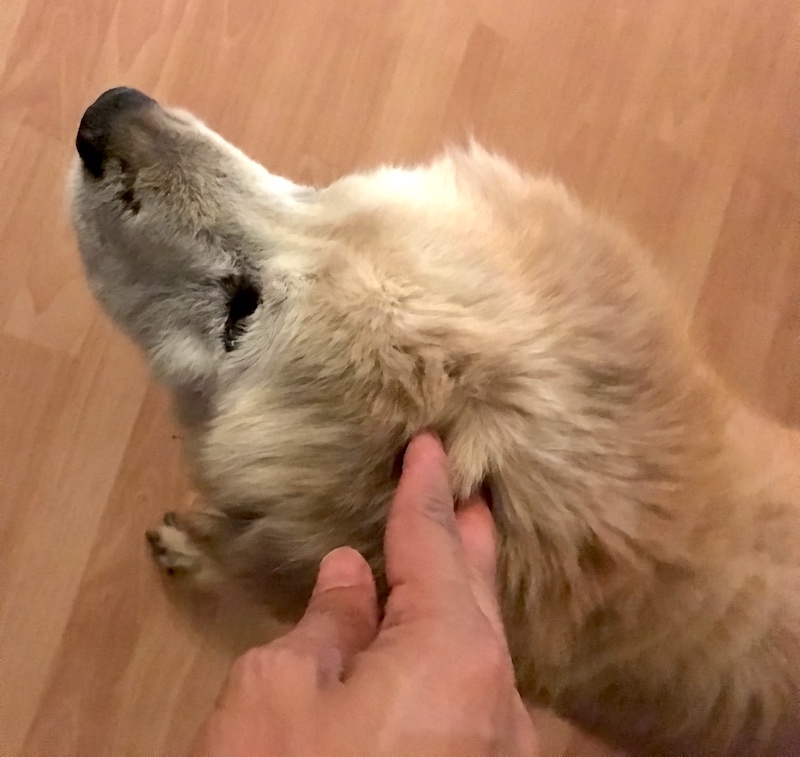
Shadow as an adult
⋯

Winter Break Recap / Favorite Occupations ⟩
January 16, 2018, by Bryan
Going into my final semester of the Master’s program here at USC, I wanted to post a walk through of winter break through the lens of a few of my favorite occupations. Hope you enjoy!

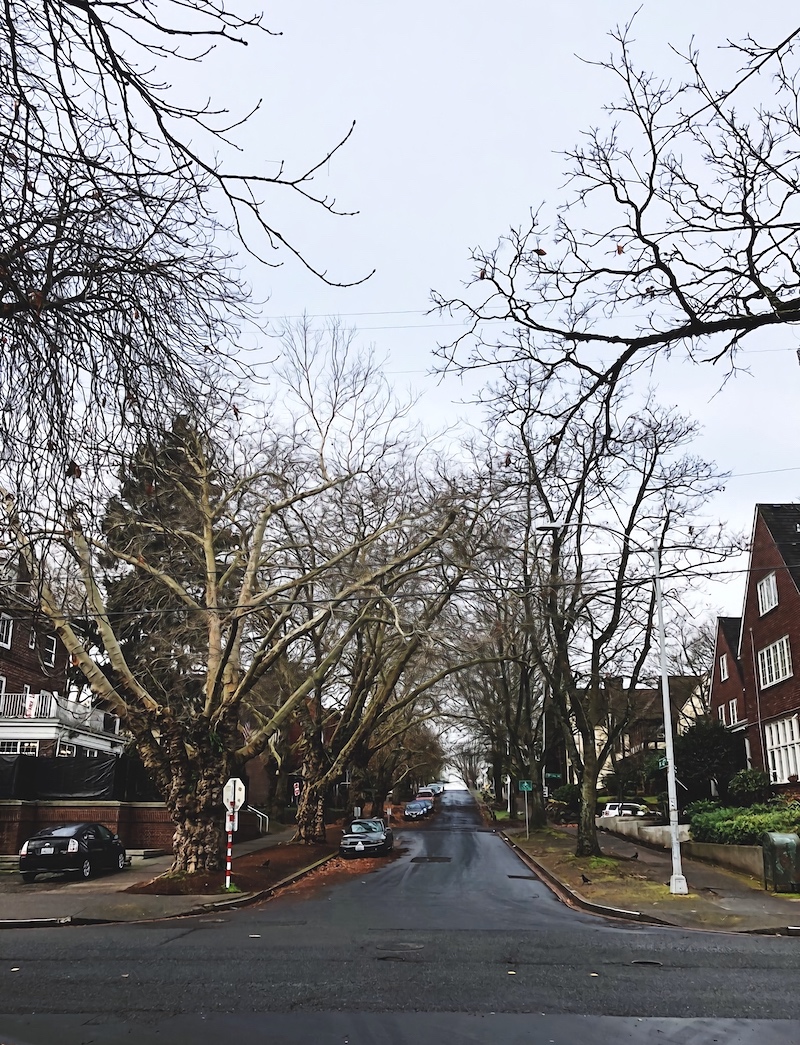
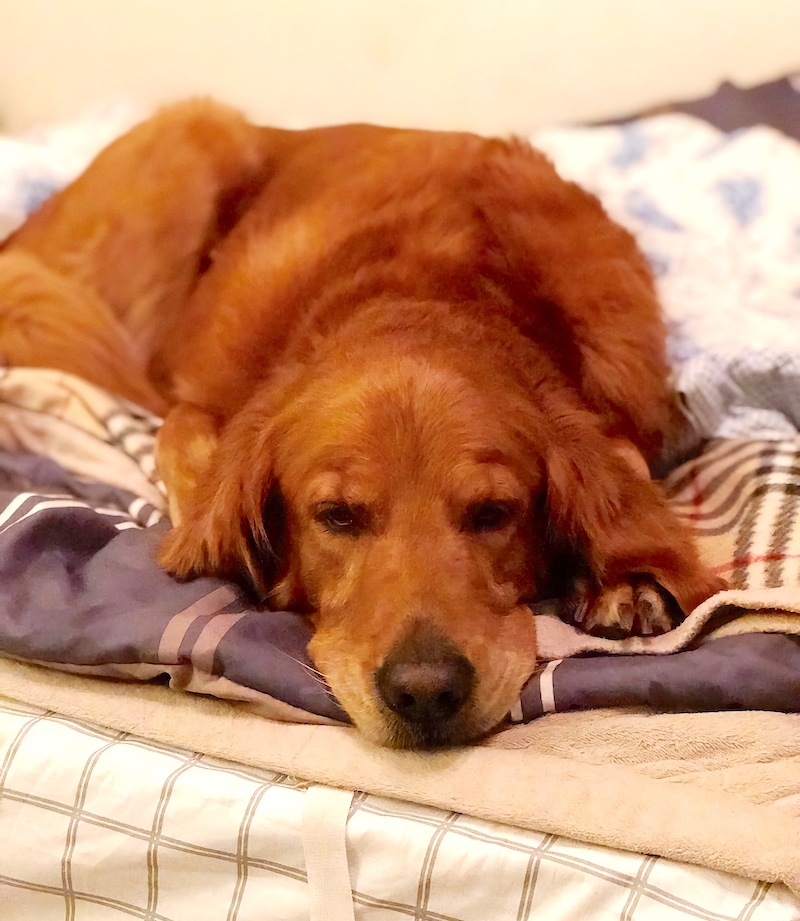

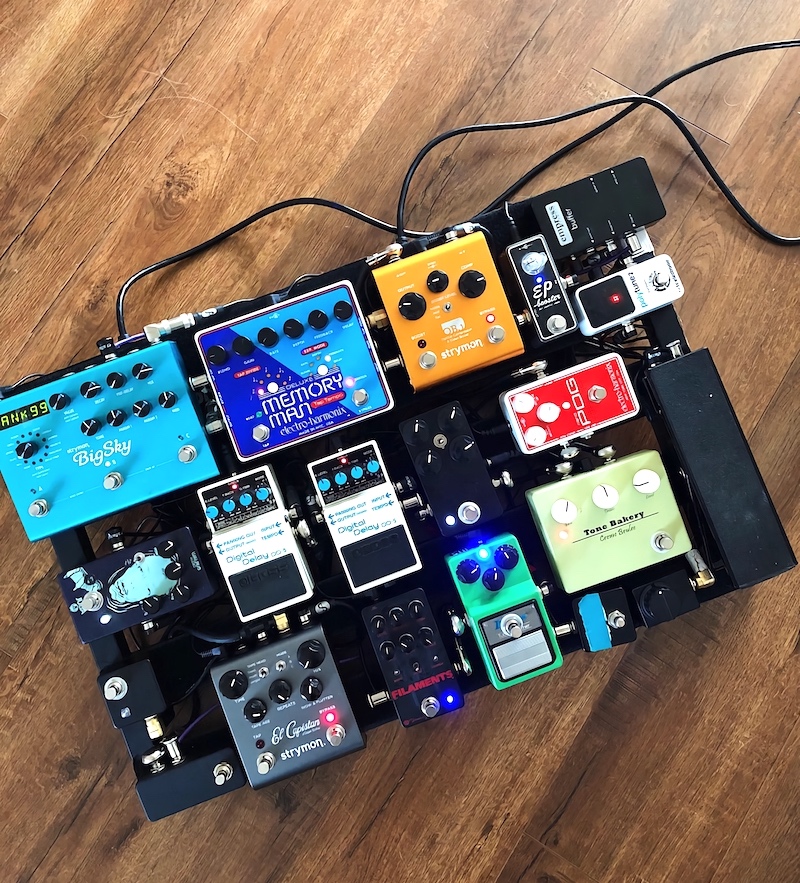
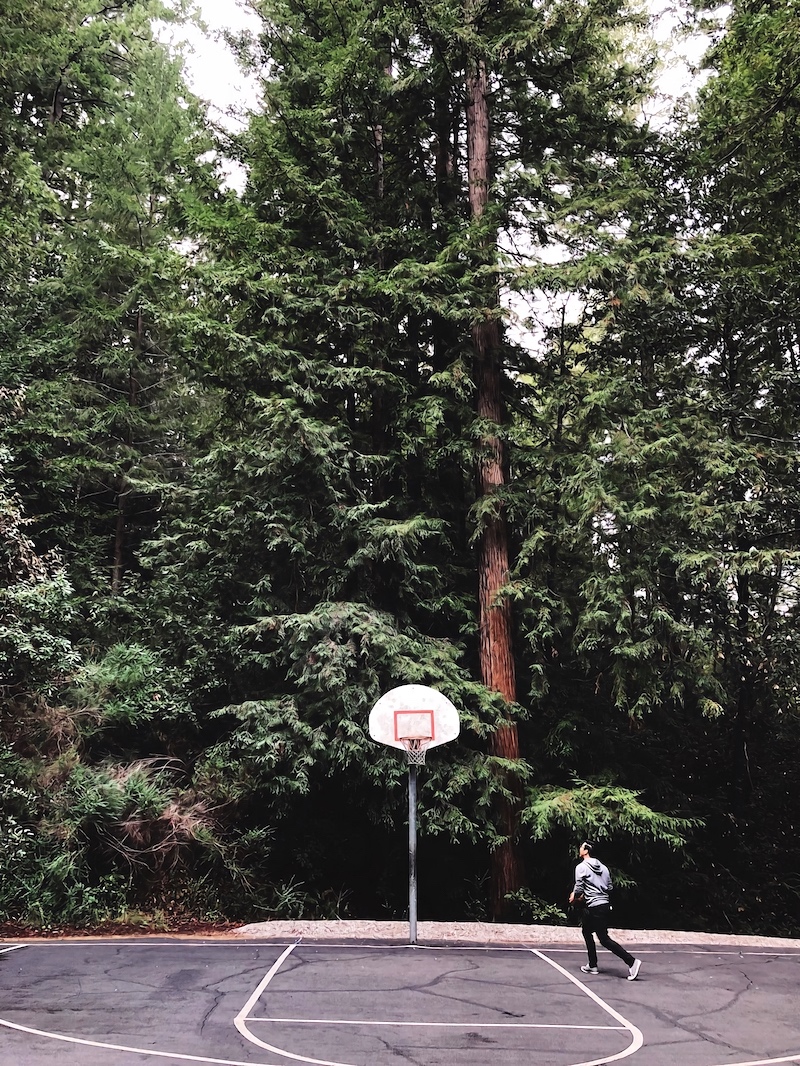


⋯

Some Alternative Transportation ⟩
December 1, 2017, by Bryan
Housing and Transportation Living in LA
I thought this post might be useful for anyone considering applying/attending USC who lives outside the LA area! I currently live in Redondo Beach and driving to campus is definitely taxing. It takes a little over an hour each way and there are plenty of cohort members who commute all the way from the OC! For those who are looking for some alternative and cheaper forms of transportation/parking, here are a few.
- Metrolink Trains. A number of my cohort members take this train from Fullerton/Irvine/OC area and it is a great option! The train has seats to sit on and study or sleep and also travels straight to Union Station, from which you can board a USC shuttle to take you to Health Science Campus. The downside with these trains is that the departure times are pretty limited so you will probably have to wake up pretty early and leave campus by specific times.
- Metro Bus. I personally take the silver line 910/950 which goes straight from Gardena area/91 fwy entrance in the South Bay all the way to LA+USC Hospital which is close to the Health Science Campus! The commute consists of just one bus and takes about ~1hr to get to HSC. A major benefit is that the Tap Card bus pass (which works for all other Metro lines as well!) is 107$/semester. You can purchase a Tap Card online through USC and pick up the sticker on HSC campus.
If you do end up driving and are looking for other potential parking options, there is metered parking available on campus that expire in 4 hour intervals (1$/hr) as well as free parking available on Valley Street right next to campus, across the train tracks. If you search “Lincoln Park” into your maps app, you can find free street parking around that area. Finding street parking along Valley gets tough, however, so definitely give yourself some time to find a spot and walk to class.
Hope this makes your commuting lives a little easier!
⋯

My Favorite Holiday ⟩
November 21, 2017, by Bryan
More than the food, football, and even times with family, I love Thanksgiving because it forces me for at least one day to stop complaining (“OMG Adult Rehabilitation is so tiring”) and try to focus on expressing gratitude. So, here are a few things I am thankful for in relation to OT and my time here at USC:
- Cohort B. Wow, it is an understatement to say that all my classmates at OT school, especially my cohort, are some of the best people I have had the opportunity to work with. I am especially grateful for cohort B because with the grind of the semester, they definitely see the worst of me. Whenever I am tired or grumpy or just over having to write short term and long term goals for ADLs, my cohort members consistently great me with a smile or ask me how I am doing. It has been a very unique and uplifting experience to feel so cared for throughout the rigors of balancing graduate school and life.
- Eric Cohen Student Health Center Free Coffee. I was honestly thinking about making this #1. Free coffee from Eric Cohen Student Health Center is the lifeblood of this program for me.
- Fieldwork educators and experiences. I have been really lucky with some great fieldwork placements throughout the program (inpatient rehabilitation facility for adult rehabilitation, pediatrics acute inpatient rehabilitation, and clubhouse setting for adults with developmental disabilities). At all three sites I had great clinical instructors/supervisors who challenged me as a clinician and helped me grow in applying what I learned in class into practice. I grew in the skills of building interpersonal relationships and establishing rapport with clients and their families. I learned how to study and come prepared to fieldwork the next day only to have all my plans thrown out the window and need to adapt to an entirely new situation and circumstances.
- Student Ambassadors. Last but not least, it has been a great privilege to be part of the Student Ambassador team this year. I honestly thought the position would be a really tough time commitment throughout the semester, but I am surprised how fun it has been giving tours and information sessions as well as presentations to prospective students. I realized how much I enjoy getting to know other people and seeing their own discovery of OT grow. It has also been so fun working with my fellow Ambassadors! It is difficult to see friends in different cohorts, so I am grateful we get to work together.
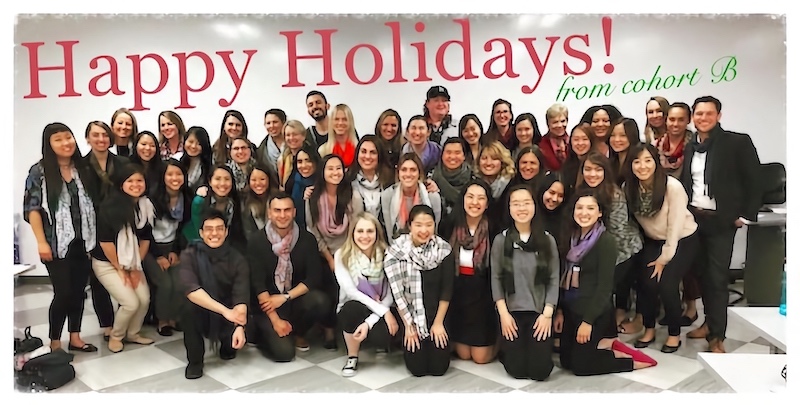
Cohort B Class of 2018
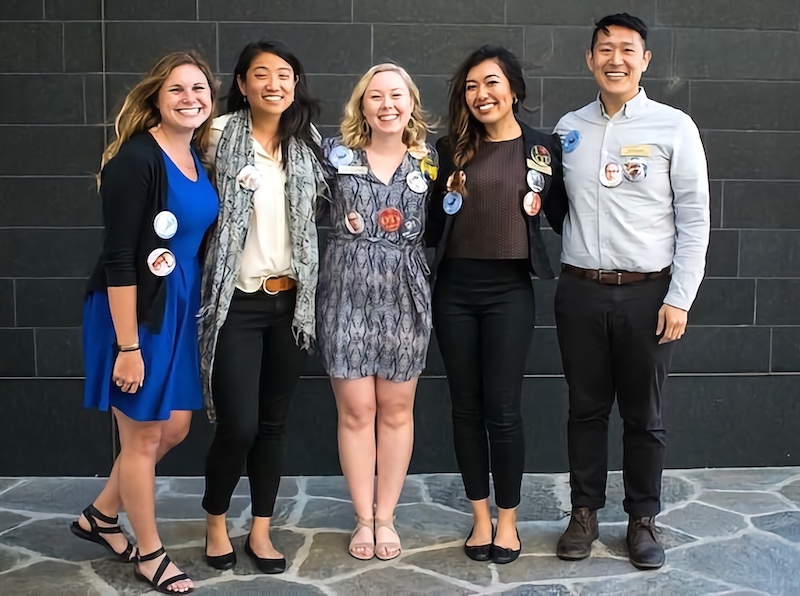
Student Ambassadors 2018
Happy Thanksgiving everyone!
⋯

I Turned 27 Last Thursday ⟩
November 13, 2017, by Bryan
Maybe it is a mixture of interacting with older patients at fieldwork, dinner with my grandma for my birthday, or slowly realizing that OT school will be over in another semester, but I have been reflecting a lot on where I am going.
I know, a scary topic for us all.
From early on, my career goals were clear: find a job that provides financial stability. It is interesting how much of this mentality has shaped me today, and while I am really grateful for it, the older I get, the more I realize the importance of doing what I love. I remember receiving a card when I graduated undergrad from my cousin who was busy working on Wall Street. He is also the son of immigrant parents so can attest to a similar lived experience. I opened the card and immediately looked for the cash gift I expected. Nothing. What the heck. Should I even read the card? I was torn!
Upon reading the contents, however, I was even more surprised to reread advice I never really seemed to take seriously: follow what you are passionate about because that is what you will work hardest to be the best at. From that point forward came the discovery of purposeful paths, whether that meant running into a dead end, detour signs, or trudging through the side-brush to find another road entirely.
What am I most passionate about?
While the A+ answer might be Occupational Therapy(!), I think my greatest passion is to get to know people and help wherever I can. My career trajectory till now captures my own efforts to crystallize this very meta passion into a 9-5. I ran the 100000000m sprinting marathon of pre-med coursework believing that doctoring was the one and truest synonym for “helping others”. I utilized the beauty of storytelling to assist people find and purchase services or products that they might really need through marketing. My heart was the same all along and OT seemed like a perfect fit for it going forward.
I guess the question for you is what are you most passionate about? Does OT help you fulfill those passions? And if it does not, that is totally okay, there is so much purpose in exploring.
⋯





